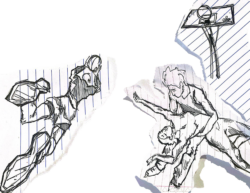On the morning of September 11, 2001, I stood by the pay phones in the Leavey Center, right down from Vittles, standing on what felt like the longest line of my life. I was waiting, desperately, to get on the phone, to dial 10 numbers, to make touch with loved ones.
To pass the time and to pretend things were as they had been when I fell asleep the night before, I was having a conversation with my friend. My mind was elsewhere during this exchanging of words, thoughts, ideas, but I said something, this one thing, that I still remember. It’s the only element of those two or three minutes I can still remember right now.
As I told my friend, these events are going to make our generation either extremely anti-foreign or extremely movement-oriented. Either they will give up, and give in to notions of hating foreigners for bringing this upon us, or they will understand the true nature of these heinous attacks and fight to make the world a better place.
Recently, I’ve been thinking about this. The world, as our generation matures, is changing. When we were growing up, no one knew what to call us. Would we be the generation that witnessed the birth of medicine that could cure AIDS? Would we be a slacker generation? What exactly was our generation in for?
In the context of sports, dear reader, our generation?the college students of 2001?is witness to wide-scale change.
Consider the past weeks. Two of the most venerable (did I just use the word “venerable?” Egad. I feel like William Nack) all-stars of their era are now memories. Tony Gwynn and Cal Ripken, who coincidentally both were the subject of a section of Men at Work, represented an old-school work ethic and committment to the game they loved. Say what you will about Ripken. Some argue his most enduring hallmark is the consecutive games streak, which is akin to the “Best Attendance Award” in middle school, usually given to the kid who couldn’t win any other awards. Ripken, and his counterpart on the Left Coast, did it consistently, for years on end, and racked up countless individual awards in the process. Gwynn taped all his games and watched them, so as to alert himself to any slumps and fix them when they occured. He did it the old-fashioned way: self-disclipine. Ripken was a rock in the infield of the I-95 pitstop we all affectionately refer to as “Baltimore.” He could always be counted on to be there; if he wasn’t, it was like a Christmas morning without presents.
Those two represented an era when work ethic and substance prevailed over careless play and flash, an era when stability meant more than sneaker deals and an era when athletes appeared in books to educate readers on the game they love, not the era when athletes wrote their own books to educate readers about how much they needed the geez damn ball.
They were old-school.
The old school is coming back on the hardwood courts of the National Basketball Association in T-Minus Less-than-a-Month, and I’m scared how he’s going to fair in the New World Order of the sports community in our country. MJ was old school: stability, work ethic and competitive desire to the max, he redefined the game on his own limits, and no one could ever argue with the money he received.
The NBA now is new-skool. Larry Johnson, another rock of stability (except for some hot tub incidents in the early 1990s) is retiring after throwing his jacked frame after loose balls for nine seasons. The new names we know and worship are Kobe, Allen, Kevin, Shaq. They are flash. Superficiality. Shoe deals, movies, rap albums. All of them except Kevin and Allen have changed teams at least once already, and Allen was ready to at one point. Kevin probably will within two years.
Our generation is coming of age in a time when superficiality is valued more than substance; when the long ball or the dunk means more than the double play or the chest pass, and when our over-focus on individualism and excelling personally has surpassed the notions of team. People flee moribund franchises because they need the rings, the money, the ad deals. In the old days, they stuck around because athletes had a strong desire to make them a winner.
Times, “they-are-a-changin.” The sports world is but one level.




